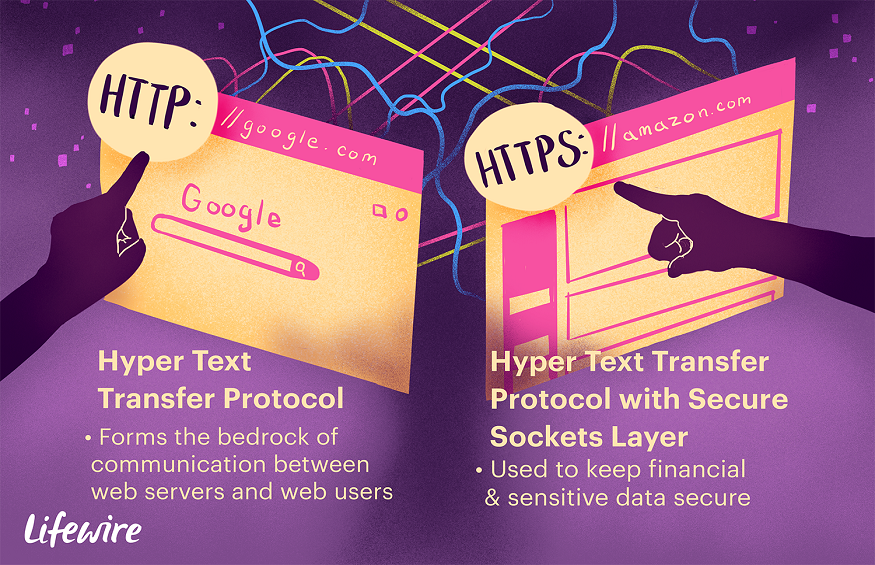You may have noticed that some URLs say “http://” in their address while other URLs have “https://” in theirs. What is the difference between the two?
It all comes down to online privacy. The difference between the two different URLs reflects the different amounts of protection available on each of the different sites. These different levels of protection are carried out via security protocols, which are the steps taken to conceal information transmitted over connections. Using methods that have more security attached to them make how to be private online much easier to navigate.
HTTP
“HTTP” is “hypertext transfer protocol,” which is the method by which information is communicated over the internet. HTTP involves both a request for information and a response by which the information is sent. In a standard HTTP protocol, the information transmitted as a response to a request is not hidden in any way. It is not kept private at all.
This lack of encryption means that the data was more easily stolen.
HTTPS
HTTPS is “hypertext transfer protocol secure.” This means that HTTPS has a security certificate attached to it. The type of security attached is an SSL, which is a secure sockets layer. This certificate creates an encrypted connection between the two servers. Because data is encrypted, it is concealed from potential hackers and kept safer from ending up in the wrong hands.
Encrypted data is converted into a code that can only be cracked by a user with the key. Even if a hacker does manage to gain access to a network and intercept information while it is being transmitted, they won’t be able to do anything with it. Unless someone has the key, they cannot access the information contained therein.
Particularly whenever you access a website where you will have to submit confidential information, from addresses and passwords through sensitive financial details, you should always look for the site to be HTTPS.
Without this level of encryption, hackers can capture information sent by users like you and read it, with no additional steps required on their part. Unencrypted data is open for the taking by anyone who is able to get their hands on it.
Because of this, the best way to keep information safe is always to encrypt it. Adding this extra layer of security prevents this data from being actionable by anyone other than the intended agent. Always look for sites that use the HTTPS protocol. This should be an absolute priority whenever any sensitive personal or financial information is at stake.
What To Do
Users are becoming savvier, and so they are learning to expect that businesses are incorporating higher security measures into their digital presence. In fact, Google is even ranking websites differently based on whether they choose to incorporate higher security measures and certificates into their web pages
Reach out to Remove Personal Information.com for more great info on internet safety and online privacy tips.

